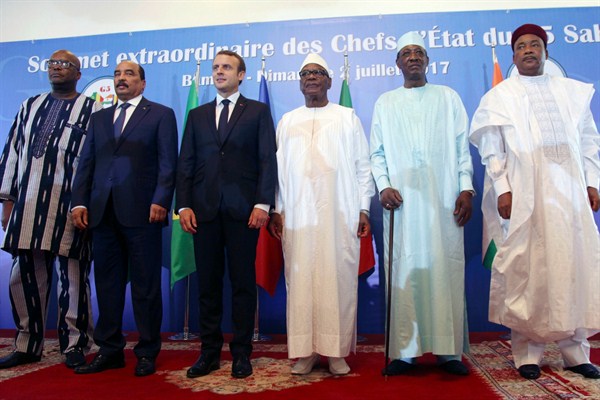It seems that everyone wants to send soldiers to the Sahel these days. Last week, the Italian Parliament approved plans to send nearly 500 troops to fight migrant-traffickers in Niger. British Prime Minister Theresa May offered to send transport helicopters to support French forces fighting terrorists in Mali.
While the Italian and British deployments may be limited, they will add to an increasingly complex patchwork of peacekeeping and counterinsurgency operations across the Sahel. Once a geopolitical backwater where France called the shots, the region has become an unwieldy mash-up of crisis-management missions.
United Nations peacekeepers patrol Mali, where French troops also hunt al-Qaida-linked cells. Paris has also backed African stabilization forces to contain jihadists in the region. In October, the death of four U.S. soldiers in a firefight on the Mali-Niger border highlighted America’s growing interest in the area. China, too, has peacekeepers in Mali and has taken casualties there. French President Emmanuel Macron used a recent trip to Beijing to lobby for more Chinese funding for African operations. Late last year, Saudi Arabia and the United Arab Emirates stumped up $130 million to help the cash-strapped governments of the Sahel launch a new multilateral counterterrorist mission, the G5 Sahel.

